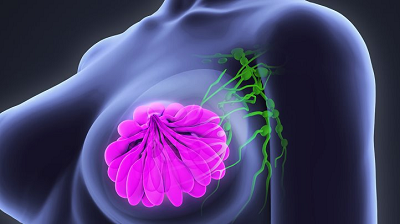
Surviving breast cancer: A survivor’s experience
Almost three years ago, I sat in a doctor’s office as he told me I had stage-two breast cancer. I would need an operation to remove my right breast and all the affected lymph nodes.
Then, I would need to have both chemotherapy and radiotherapy. I could feel my heart pounding hard. I knew I had to make a quick decision about the treatment.
Advertisement
It is frightening to be told you require surgery but to be told you have cancer can be terrifying. You feel like you have just been handed a death sentence, although in fact it is not. Cancer is the term for a sickness.
Breast cancer is treatable.
If it is diagnosed and treated early, a person has the chance to not only survive, but also thrive. That day in the doctor’s office, even though he asked me if I would like to go away and think about things, I realised there really was not much to think about.
I had to face the reality that I needed surgery, there would be a long period of treatment to follow and it would cost money. I had to trust God to see me through.
Lessons
I have learned a few things as a survivor of breast cancer. First, prayer is indispensable. Doctors treat people, but it is God who heals. Second, it is important not to panic and let fear overcome you.
Fear can cripple you and deviate you from receiving proper treatment. Again, breast cancer is a treatable sickness. The earlier you detect it and seek medical treatment, the better your chances of survival.
Third, you need to trust God that the doctors know how to direct you with respect to surgery, chemotherapy and radiotherapy, if they are necessary.
Yes, there are side effects and your hair falls out. You can always wear a wig, although I never wore one because I found it too hot with the weather in Accra.
I just wore scarves and head ties made from our beautiful Ghanaian cloth.
You can also wear hats. Your hair will grow back again, even thicker.
At least, that was my experience.
Fourth, don’t delay treatment by going off for weeks of extensive prayer and fasting.
Although prayer is important, so is action––prompt action.
The longer you delay treatment, the more the cancer spreads.
During treatment, it is crucial that you don’t deviate to try something else.
When friends and other contacts found out I had cancer, they suggested I go for this ‘alternative treatment’ or to ‘that person’ with a cure-all diet.
Someone told me about drinking carrot juice and persuaded me to buy a blender for it.
Yes, carrot juice is good for you in moderation, but you can’t live on carrot juice alone. They all meant well, but I soon found that I needed to shut out some of those voices to keep my sanity.
The chemotherapy nurse was particularly helpful in guiding me to adopt a good and balanced diet.
Cost of medical treatments
Fifth, the medical treatment costs money. You may think you can’t afford it or your husband says, ‘We can’t afford it’.
Yet, if you die, your family will find the huge amount of money to spend on your funeral.
You need to tell your husband, family, friends, fellow workers and those you go to church or the mosque with: ‘Invest in my life and not in my death.
Help me to continue living.’ Trust God and share your difficulty with others.Encourage them to share in your burden. God wants us to bear one another’s burden.
Sixth, you need to persevere throughout the treatment. You will feel very sick. Friends and family are important to help you get through it and to encourage you.
I found I needed long periods of rest. My energy was completely depleted and I had to stop work. But I also learned I was not alone.
At the chemotherapy and radiotherapy sessions, I met others also experiencing pain with various types of cancers.
Misconception: A mammogram can cause breast cancer.
Truth: A mammogram or x-ray of the breast currently remains the gold standard for the early detection of breast cancer.
The benefits of mammography outweigh the potential harm from the very small amounts of radiation exposure. The recommendation is a 1-2 yearly mammographic screening for women, beginning at age 40.
Misconception: Breast cancer is contagious. Truth: You cannot catch breast cancer or transfer it to someone else even if you have sucked that breast.
Misconceptions: Antiperspirants and deodorants cause breast cancer.
Truth: Research has not shown any conclusive evidence linking the use of antiperspirants or deodorants to breast cancer.
Under-wired brassieres and keeping money in brassieres have also not been shown to cause cancer.




